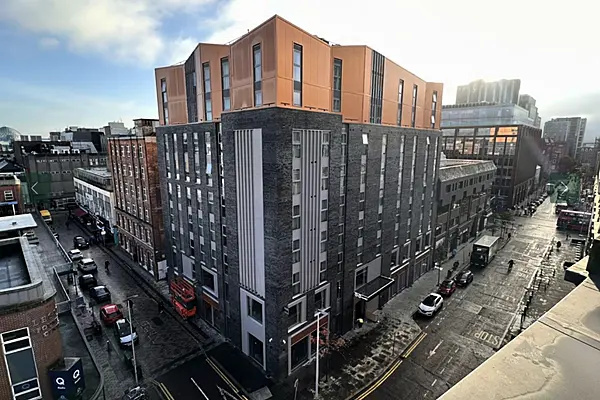John O'Beirne, executive director of Square Europe, talks to Robert McHugh about how kitchen operations can be optimised with AI.
Square, the global technology company, has released its key trends for Irish businesses to watch out for in 2024 with generative AI playing a major role for firms of all sizes in Ireland as the technology develops.
In 2024, it is predicted that more restaurants will adopt 'smart kitchens,' using AI to do things like auto-assign menu items to kitchen categories and station screens to create smooth workflows for back-of-house staff.
John O'Beirne, executive director of Square Europe, believes that the emergence of new technologies will help restaurants to run more efficiently by utilising specialised tech to streamline how they run their business.
In an exclusive interview, O'Beirne tells Hospitality Ireland how kitchen operations can be optimised with AI.
You recently remarked that 2023 has been marked by the emergence of AI? How has this affected the hospitality industry?
One of the key areas where AI has made significant strides in the hospitality industry is in guest experience management. Through AI, restaurants and pubs can provide round-the-clock assistance to guests, addressing their queries, handling reservations, working on orders or deliveries and even suggesting personalised recommendations.
Moreover, restaurants can now create a full menu using AI in just a few minutes giving them – or any business looking to expand into food and drink offerings - a handy tool that saves them time.
New technologies like AI can assist restaurant managers to keep menus and operations up to date by editing and saving catalogues with just a few clicks, expediting the process of getting orders fired. This will allow restaurants to save time on administrative tasks and cater to more customers.
What is a smart kitchen?
A smart kitchen includes numerous technologies and devices, generally connected via the internet and equipped with AI capabilities, to improve and automate various processes of cooking and food preparation.
The purpose of a smart kitchen is to make cooking more convenient and efficient.
Kitchen operations can be optimised with AI by auto-assigning menu items to kitchen categories and station screens, creating smooth workflows for back-of-house staff.
Can the emergence of new technologies help restaurants to run more efficiently?
Absolutely. Restaurants are like highly complex mini factories – they are heavy on process, with raw goods coming in the door and finished goods landing on people’s plates. There are a dizzying number of teams and people and there are many repetitive tasks throughout that process. Owners want time back to work on their business, not in it.
Automation and other technologies can give this time back, through more productive back of house operations that gets food out faster or through automated email marketing that keeps guests coming back in.
With small, iterative AI updates, it’s easy for restaurants to instantly start seeing the effects of greater efficiency and usually without any additional costs incurred.
What are your predictions for 2024 with regards the use of technology in the hospitality industry?
The reality is that running a restaurant is hard – and as we saw with the pandemic and the switch to online ordering, businesses will make the shifts they need to stay resilient.
With ongoing labour shortages, rising costs of goods and hiring staff, and increased customer expectations, the hospitality industry can improve its chances of flourishing if it is able to begin incorporating AI now. Therefore, we expect to see the hospitality sector increasingly adopting AI this year to help speed up processes so the business becomes easier to operate with better expertise and less time.
In addition, more businesses look set to use AI to help them send personalised emails and offers to customers and keep their websites updated.
The emergence of new technologies means that the industry will now be able to run a lot more efficiently by utilising specialised tech to streamline how they run their businesses.
What are the downsides of these technologies being introduced in the hospitality sector?
It’s all about connection. A key thing to remember is that while a number of tasks can be made simpler by automation, restaurants are always going to need people – guests are expecting hospitality, and a personal touch, when they dine out.
It is, after all, a significant part of the dining experience.
AI has the potential to revolutionise hospitality, but it will never replace people.
What advice would you give to hospitality professionals who want to better understand these technologies to improve their business?
My advice would be that as the sector begins to incorporate AI and automation into their businesses, they should keep an eye on their metrics and their new tech’s impact.
Having a list of KPIs to measure the progress can hopefully see smoother operations, happier staff and guests, and a better bottom line.







